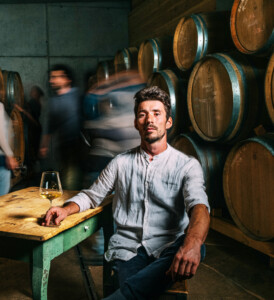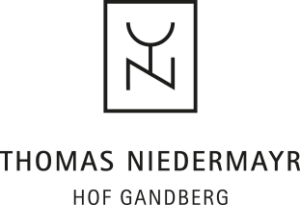Thomas Niedermayr

Thomas Niedermayr
About
Owner & winemaker: Thomas Niedermayr
Vineyards: 5ha across 7 parcels at 450-700m above sea level, 3ha estate-owned and 2ha rented
Vineyard management: Certified organic, farming organically since the mid 1980s
Soils: Mostly loamy and calcareous soil with high contents of white Dolomite rock; some lower parcels are sandy with slate
Grapes grown: Solaris, Bronner, Souvignier Gris, Muscaris, Cabernet Cantor, Cabernet Cortis, plus a dozen other experimental PIWI varieties
Annual production: 30,000 bottles
Quick facts:
- The Niedermayr family is one of the pioneers of using PIWI (also known as hybrid or resistant) grape varieties in Europe. Thomas’s father Rudi planted their oldest Solaris vineyard in 1999.
- “The feeling I get when I am not ‘just’ standing in the vineyards working, but in the midst of nature that has the right to remain untamed, is something that I wanted to carry over to the cellar. Letting the whole process of wine production – from the grape to the bottle – unfold naturally is a wonderful challenge. When you can tell from the taste that wine is pure and has been produced by hand, then it has charisma. Wine should be allowed to reflect its vintage and tell its story.” – Thomas Niedermayr
The Niedermayr family winery has been pushing boundaries in Alto Adige for almost four decades now. Thomas’s father Rudi was one of the first farmers in Italy to convert to organic farming back in the 1980s, when he began to recognize the damage conventional farming techniques did to the soil. His drive to continually reduce chemical inputs led him to PIWI (also known as hybrid or resistant) grape varieties. He became one of the first in Italy to begin cultivating them in the early 1990s, and since the early 2000s he has been breeding his own experimental varieties. When he planted their oldest Solaris vineyard in 1999, it was the first time the grape had been planted in Italy, and it didn’t even have an official name yet.
Thomas grew up on the property and has been helping out on the farm since he was a child. After some time abroad, he returned to take over the winery in 2012. “I came back to the farm because the distance allowed me to see more clearly how my father had done pioneering work beyond all boundaries,” Thomas explains. “I came back to the farm with the motivation to build on his wealth of experience and to bring this philosophy and potential to the outside world.”
The farm itself is located about 500m above sea level, in the heart of the Dolomites, in the region known as South Tyrol, Südtirol, or Alto Adige, depending on your linguistic preferences. (German is as widely spoken as Italian in this part of Italy.) Surrounded by forests, the vineyards benefit from a unique microclimate where cold mountain air flows through the vineyards even during the hottest days of summer. Their most important PIWI varieties are Solaris, Bronner, and Souvignier Gris. Thanks to the natural resistance of these hybrid varieties, they are able to farm almost entirely without treatments, and have been able to work without copper for many years now. They farm mainly by hand, avoiding the use of tractors as much as possible, which means fewer emissions, no soil compaction, better soil structure, better water retention, and more microbial life. The same goals are served by the use of year-round cover crops, which also promotes soil life, fixes nutrients, and creates a healthy ecosystem as food and habitat for insects. They grow grain, maize, potatoes, pumpkins, and more between the vines. In addition to vineyards, they cultivate one hectare of apples and about 30 chestnut trees.
It may be a cliche, but the hard work really is done in the vineyards here. In the cellar, the goal is simply to express that quality without additives or manipulation. Fermentation takes place in stainless steel, then the wines mature in large, used wooden barrels made from oak, chestnut, or acacia. Since Thomas took over, he has experimented with skin contact, direct pressing, and carbonic maceration. They eschew temperature control, filtration, and fining, and add only a small amount of sulfur at bottling.
“I want to make wines that reflect the identity of us and the region in which we live, with all its rough edges, in a positive sense,” Thomas asserts. “Puristic, mature, long-lasting wines with character, which become better, more elegant and more profound even after many years of ageing. Wines that show the potential of our varieties, sites and soils with our many years of experience.”

